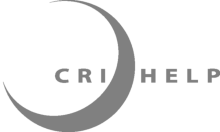Since we cannot assure the safety or security of valuable items, we ask that clients refrain from bringing cell phones, credit cards, expensive jewelry, checkbooks, computers, pagers, iPods, etc. Possession of these items upon admission into treatment is prohibited. Following completion of the orientation period, clients will be permitted to use CRI-Help’s phones.

FAQs
Can I work while I am in treatment?
Many of the clients enrolled in CRI-Help’s outpatient programs are employed full-time and attend groups and individual counseling sessions outside of regular work hours. During residential treatment, clients must complete the orientation period and progress through treatment phases before seeking employment or returning back to work. The Phase System is described in depth in the Family Orientation Handbook.
When can I see my family?
Visitation occurs on Saturdays after clients reach Phase Two. Parents with children ages 12 and under are permitted visits from their children during the Orientation Phase and outside of the ordinary visiting hours. Of course, we understand that you may have special needs, so feel free to ask! CRI-Help provides a program specifically designed for family members, including parents, children, siblings, and spouses. More information about CRI-Help’s Family Education Group and Multi-Family Group can be found in the Family Orientation Handbook.
What can I bring?
Please refer to the Family Orientation Handbook for information about what you can bring to treatment.
Can I smoke cigarettes while I’m in residential treatment? What about E-cigarettes?
The use of tobacco products is permitted in designated areas only. Rolling tobacco is not permitted. E-cigarettes are not permitted. Smokers are encouraged to participate in CRI-Help’s smoking cessation group.
Are you in-network with my insurance provider?
Please visit our Financing Options page for a list of insurance providers in our network.
Do you accept Medi-Cal?
Beginning July 1, 2017, CRI-Help accepts Medi-Cal for adult, Los Angeles County residents for its Residential Withdrawal Management (ASAM Level 3.2), Residential (ASAM Levels 3.1 & 3.5), Intensive Outpatient (ASAM Level 2.1) and Outpatient (ASAM Level 2.0) levels of care. In addition, adult Los Angeles County residents with Medi-Cal may be eligible for the Recovery Bridge Housing benefit, which may afford them up to 90 days in an alcohol and drug free living home while they participate in one of our outpatient programs.
Do you have financing options?
We encourage you to chat live with an intake specialist here. We do our best to make arrangements to meet your needs.
Can I bring my kids?
Children are allowed to visit their parents in treatment on Saturdays. Also, children 12 and older are allowed to participate in Multi-Family Group Therapy.
Can I bring my pets?
No pets are allowed.
What are your credentials / qualifications?
CRI-Help’s treatment team is composed of licensed and certified treatment professionals, including doctors, nurses, psychologists, therapists, and certified drug counselors. Additionally, CRI-Help is licensed and certified by the State of California, and accredited by CARF. Click here to learn more.
Do you have a doctor on-site?
We have a doctor on-site seven days a week in our 15-bed subacute detoxification unit. We are happy to coordinate your doctor appointments via our Social Services office.
Are you a 12-Step program?
We utilize 12-Step Facilitation Therapy, which is an evidence-based practice. Clients are introduced to 12-Step meetings and study literature of the program that best suits them.
Is it a co-ed facility?
Yes, CRI-Help is a co-ed facility. However, we strongly discourage communication between the opposite sexes outside of groups as we believe it hinders the treatment process.


